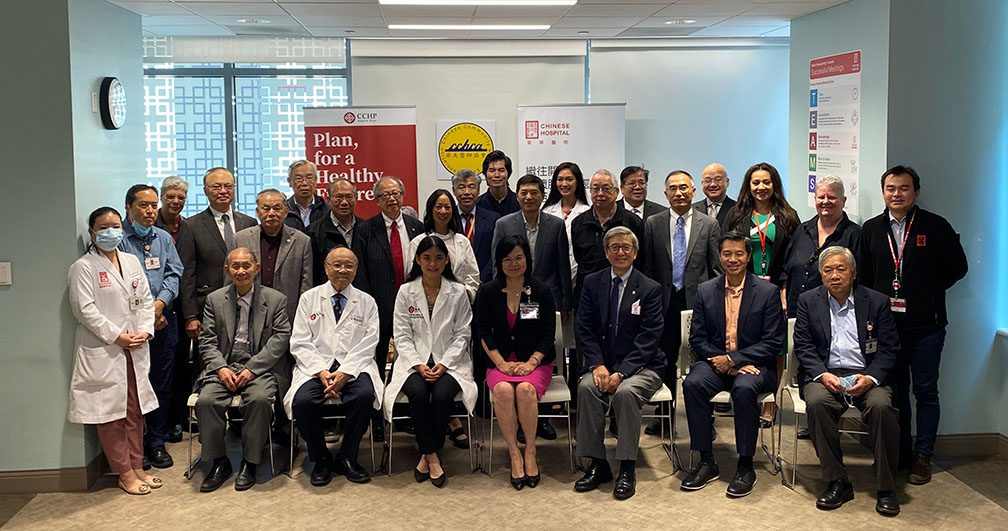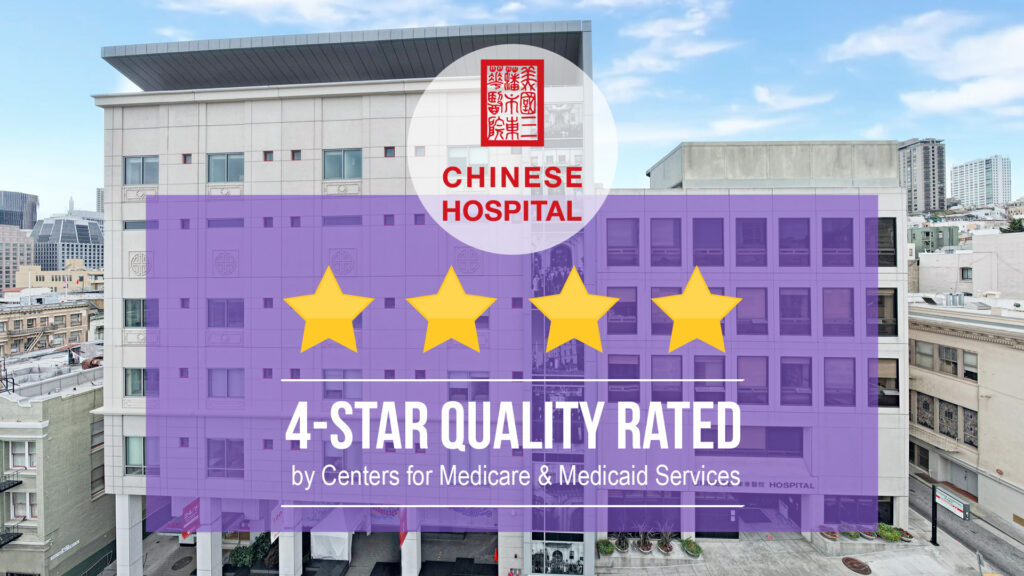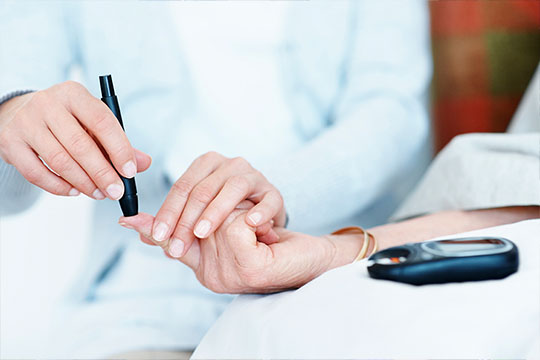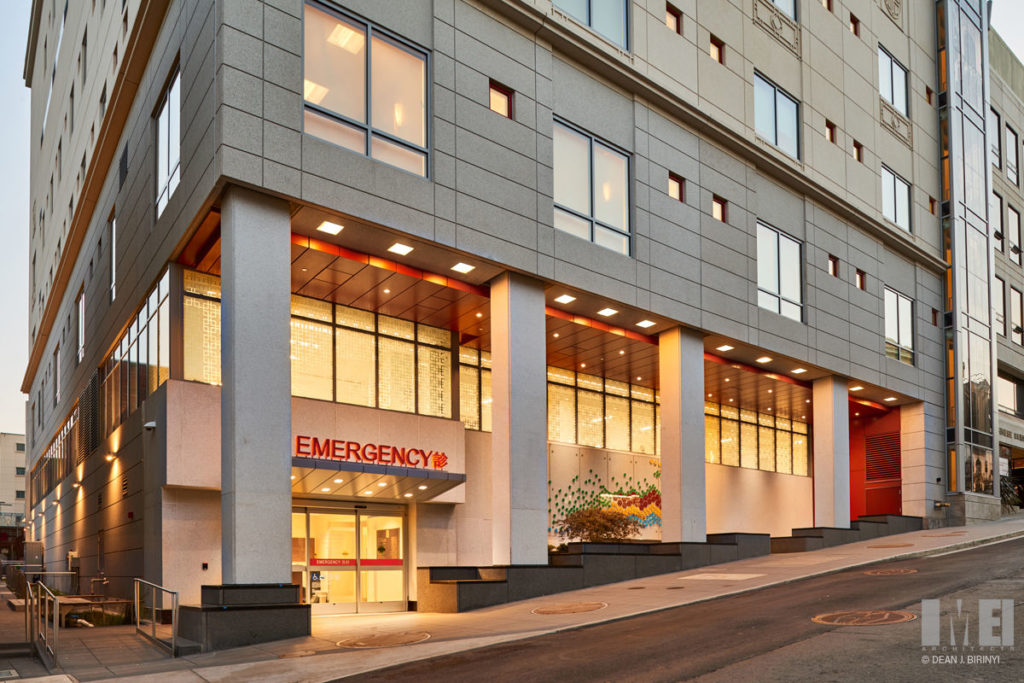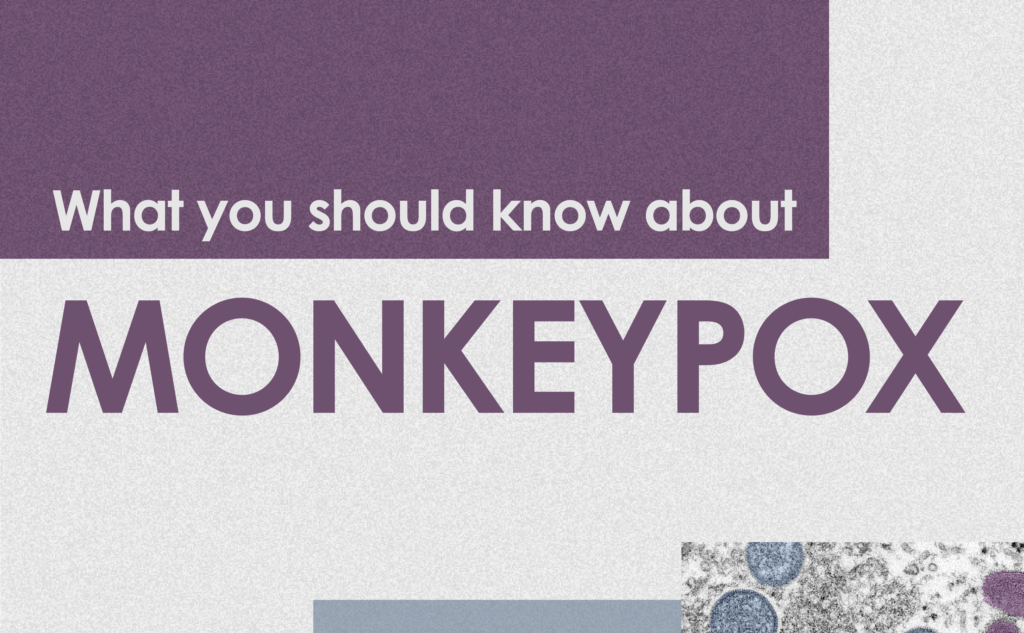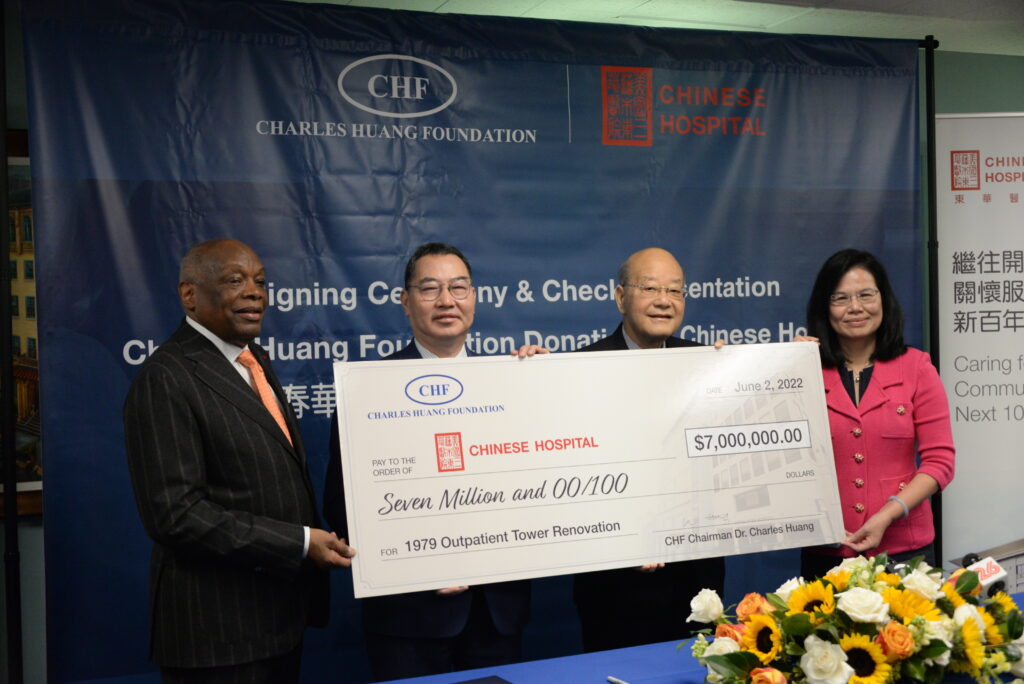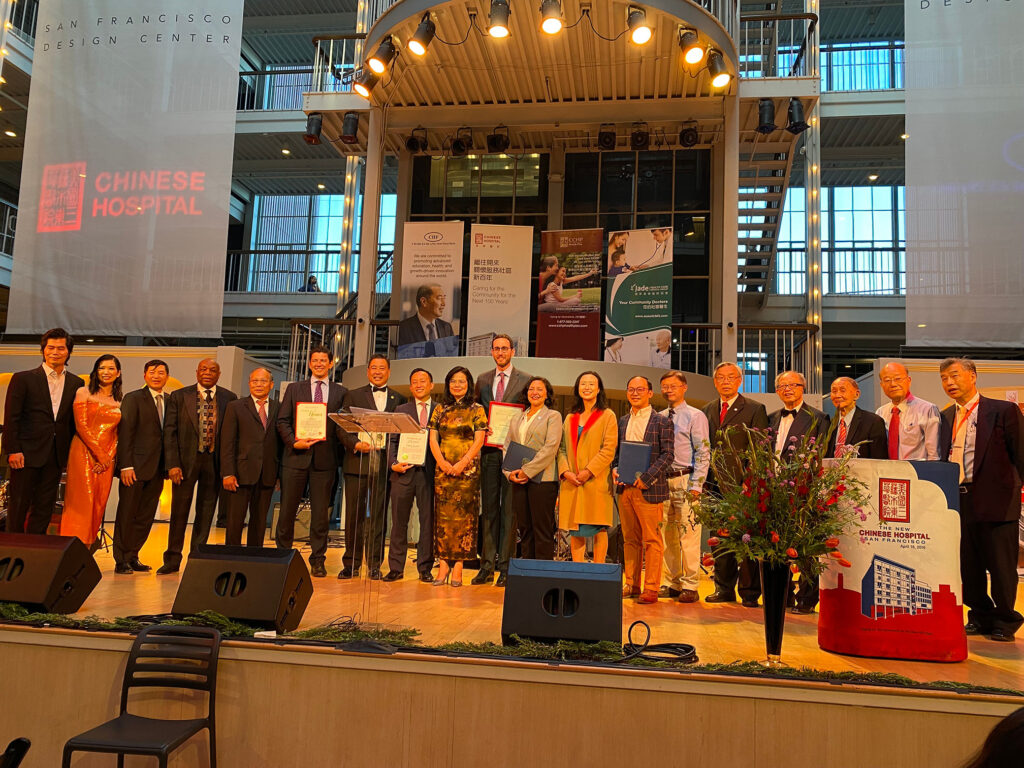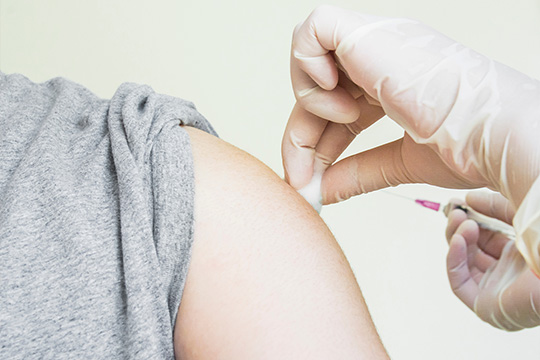By Katrina Schwartz
Published July 14, 2022
San Francisco has some of the country’s premier hospitals. Big providers like Kaiser, Sutter Health and UCSF Medical Center operate here, part of a vast and complicated system of health care that can feel byzantine in complexity. So it’s hard to believe that hospitals here were once a lot simpler: people with ethnic or religious affinities taking care of one another. Bay Curious listener Ken Katz saw hints of this history and wanted to know more.
“I work at Kaiser Permanente in San Francisco, and one of our campuses is the French campus,” Ken said. “Only recently did I learn that the reason it’s called the French campus is it’s the site of the former French hospital.”
Then he remembered that when visiting California Pacific Medical Center Davies, in the Castro, he’d once seen an exhibit showcasing the building’s history. It was once known as “the German Hospital.” Two hospitals named after ethnic identities seemed like an unlikely coincidence to Ken.
“So I’m wondering, when did this pattern of ethnic hospitals in San Francisco begin? What was the impetus for it? And when did they start losing their ethnic orientation? Or, maybe some, like the Chinese Hospital, haven’t yet,” he said.
Ken’s question sparked the curiosity of other Bay Curious fans and won a voting round. The answer, like so many things, goes back to the Gold Rush, when thousands of people poured into the region, multiplying the city’s population several times over in a matter of months.
When care was provided at home
People lived in the Bay Area long before the Gold Rush, of course. The smattering of colonizers, Mexican ranchers and native peoples would have relied on herbal remedies when they got ill. At that time, San Francisco was a sleepy town with few amenities. It was unprepared for the surge of gold seekers from all over the world that descended after news spread that gold had been found near Coloma in 1848.
Many fortune hunters were men who came expecting to prospect for gold, strike it rich and return home. Most did not bring their families with them, which was a problem when they got sick.
“The primary source of care before hospitals was in the home,” said Aaron Jackson, a doctoral candidate in the department of health sciences at UCSF. His research focuses on the evolution of care for veterans and intersects with the general history of hospitals in America.
The first doctors in San Francisco came for the same reason as everyone else — to prospect for gold. But, when it started to become clear that gold mining wasn’t as easy as it sounded, some of those doctors returned to their prior profession. The quality of their services varied widely, but all of them would have attended patients in their homes. That model didn’t work as well for people who didn’t have families to care for them.
Maritime hospitals were the first institutions to address this structural problem.
“Sailors are obviously away from their families,” Jackson said. “Some of these sailing expeditions could last years, and if they got sick, well, the ship would have to still continue on, but the sailor would have to have a place to stay.”
The maritime hospital mostly provided sailors a roof, food and a bed in which to recover. At this point in history, hospitals were less focused on medicine and more on providing general care, the kind that would normally have been offered at home. Even the word “hospital” comes from the same root as “hospice,” Jackson said, meaning “to care.”
But the maritime hospital served only a small portion of the population. With so many people jammed into San Francisco, it was only a matter of time until diseases like cholera and smallpox started to spread. Many people were getting sick and had no one to care for them. That’s when churches and benevolent societies got involved.
A proliferation of hospitals
“The hospital being attached to the religious element or to the ethnic group is something that goes back centuries in Western Europe,” Jackson said. “And that was inherited by the United States from the earliest days of colonialism.”
Many religions included charity as part of their missions, so it made sense that they would be involved in early health care.
But to understand the ethnic origins, it’s important to know that many early San Franciscans did not yet identify as “American.” They considered themselves to be French, German, Chinese, Mexican or Spanish, to name just a few. And people in these groups stuck together. They created benevolent societies that acted as social safety nets. And they funded hospitals, formed welcoming committees for new arrivals, cared for widows and orphans, and even provided undertaking services.
The French Benevolent Society established the first private hospital in San Francisco in 1851, known as the French Hospital. The Catholic Church sent a group of Irish nuns in 1854 who would eventually establish Sisters of Mercy, later known as St. Mary’s. Many immigrants to San Francisco found it comforting to receive care that adhered to their cultural or religious values and that was delivered in their home languages.
There was a public hospital, but by all accounts the care there was terrible and corruption rampant. So, many more ethnic and religiously affiliated institutions opened in the 1880s and ’90s as people realized how bad the public care was.
San Francisco’s wealthy show off
The city’s early hospitals may have started as a stop-gap measure to care for people without families, but they soon became places that mostly cared for the poor. It became prudent for newly wealthy San Franciscans to donate money to their home-country benevolent society or church to show off their social standing.
“The Jews have a unique experience here,” said Judi Leff, a teacher and historian of San Francisco’s Jewish community. The first Jewish people to immigrate to San Francisco were from Bavaria, Germany. They experienced religious discrimination in Europe, where they had few professional or social opportunities and were limited to making their livings as traders, traveling salesmen and money lenders. They came to California, like so many, for better opportunities.
“What they discover is that these miners have a lot of needs,” Leff said.
The mining industry sprang up almost overnight. Men working in mining camps out in the hills needed food, supplies and tools. The Jewish arrivals were poised to start successful businesses.
“The very things that they are limited to in Europe allow them to become successful rather quickly out here in California,” Leff said.
Think of Levi Strauss providing clothing to the miners.
And, because San Francisco was a young city, building itself up quickly, the Jewish community did not experience the same level of religious discrimination as they did in Eastern cities like New York and Boston. It helped that they were perceived as white, and so did not face the racial bias non-white groups, like the Chinese, endured.
“You don’t have a lot of religion and you don’t have a lot of law,” Leff said. “So yeah, it’s just like, ‘Can you do the work or can you help us do the work? Great.’”
Once established, the Jewish community started giving back to the city that had provided them with so many opportunities. Look around San Francisco today and you’ll see the legacy of Jewish philanthropy throughout the city including Fleishhacker Zoo and Pool, Stern Grove, Steinhart Aquarium at the California Academy of Sciences and Hellman Hollow in Golden Gate Park.
“They also want the reputation of the Jewish community to be held in high esteem,” Leff said. “This is very important to the Jews because this is a new experience for them to be in San Francisco and to be regarded so well. They want to keep up appearances.”
The founding of Mount Zion Hospital
The Jewish community’s first priorities when they arrived in San Francisco were to meet the specific needs of their community. They established sources of kosher food, built synagogues to worship in, raised funds to support widows and orphans, and established religiously appropriate burial services. But by 1887, they turned their attention to health care. The story goes that a prominent Jewish businessman, Frederick Castle, had recently lost his son to smallpox at the poorly run county hospital.
“And something like 43 Jews get together and they decide that there’s going to be a hospital, but it’s going to be nonsectarian,” Leff said.
The Jewish community had a debate over whether the new hospital should serve only California’s Jewish population, but ultimately influential rabbis like Jacob Voorsanger of Temple Emanu-El, Jacob Nieto of Sherith Israel, and Myer S. Levy of Neth Israel won out. They argued that a hospital that served San Franciscans of all faiths would be a better tribute to the city. Mount Zion hospital opened in 1897 with just 12 beds.
Fairly quickly, the Mount Zion Hospital Association realized they should train nurses to help provide higher-quality, more consistent care. When UCSF medical school wanted to partner with Mount Zion to become a teaching hospital in the 1920s, it was a natural fit. Over time, as the medical school became more established, it took over Mount Zion hospital entirely.
Chinese Hospital represents another reason for ethnic hospitals
While hospitals affiliated with ethnic groups from Europe flourished and new immigrants built wealth and power by becoming benefactors, the same was not true for the Chinese community, who also came to San Francisco during the Gold Rush. Chinese miners experienced harsh racism in the mining camps and in communities around California. When they got sick, most hospitals refused to care for them. To make matters worse, many white San Franciscans wrongly blamed the Chinese population for spreading disease.
Chinese community leaders repeatedly asked the city for better health care and were denied. Finally, members of six prominent benevolent Chinese societies, known collectively as the Six Companies, raised enough money to build. But before they could do so, white people living near the proposed site in Portola mounted a campaign to stop the project, using racist arguments that the presence of a Chinese hospital near their homes would lower property values.
The Board of Supervisors sided with the white neighbors and the hospital planned for Portola was never built. Instead, the Tung Wah dispensary — a clinic, not a hospital — opened in Chinatown in 1900. It was a forerunner of the Chinese Hospital, was staffed by Christian missionaries and pioneered a blend of Eastern and Western medical practices. Only six years later, the dispensary burned down during the 1906 earthquake and fire, and the community had to begin fundraising once again. This time they’d take nothing less than a modern hospital.
The first Chinese hospital in the country opened in San Francisco in 1925 with 60 beds. The community raised funds from all over the country and world. Celebrations lasted 11 days and included a festival queen, parade, and ball.
What happened to ethnically affiliated hospitals?
Providing care to poor people has always been an expensive proposition. Many of San Francisco’s early hospitals struggled to cover their costs, developing elaborate fundraising schemes to keep money coming in the door. Each local hospital with ethnic or religious roots has its own unique story of how it lost its orientation, but there were some larger trends that also played a role.
Global events like World War I and the 1918 flu pandemic led to many more people needing medical care all at once. There wasn’t enough existing hospital space, and cities like San Francisco had to scramble to convert gyms and churches into care facilities.
Meanwhile, as more hospitals became associated with medical schools, the hospital as an institution became more prestigious.
These developments led cities to take an interest in funding hospitals. It became a point of civic pride to have a world-class hospital, and it made more sense to take over existing hospitals than to build new ones. Over time, municipalities started to contract out their hospital services to private companies because it was cheaper. And ultimately that’s why the old French hospital is part of Kaiser, the old German hospital is part of Sutter Health, Mount Zion is part of UCSF, and St. Mary’s is part of Dignity Health.
Chinese Hospital remains
Chinese Hospital is the only ethnically oriented hospital that continues to operate independently in San Francisco. That’s in large part because much of the racism and exclusion that spurred its development is still pervasive.
Dr. Jian Zhang, CEO of Chinese Hospital, said several of her employees have been physically and verbally attacked since the coronavirus pandemic began. Some people blame the Chinese community in San Francisco for bringing the disease to the U.S. and spreading it, an unsettling reminder of the exact same rationale used by white San Franciscans against the Chinese community in the 1800s.
The rise of anti-Asian hate makes Zhang angry, but she tries to stay focused on the important role Chinese Hospital plays in the community.
“We still have a lot of monolingual immigrants and low-income living in Chinatown,” said Zhang. The hospital now has satellite clinics outside of Chinatown and serves people all over the Bay Area, but their mission still stands: to provide culturally appropriate care to the community.
“Think about it — you can go in and talk to a provider who can speak your language and understand your culture,” Zhang said. “It makes a huge difference. That’s what a lot of patients told me, and a lot of doctors told me, too.”
The longevity of Chinese Hospital has made it a point of pride in the community. Even lower-income patients donated money to the hospital’s fundraising campaign. And they treat it like their own, too. Before the coronavirus pandemic changed the rules, many people living in the community would bring their breakfasts and newspapers and read in the lobby of the hospital.
“It’s a community place for them. It’s safe,” Zhang said.
